The nonprofit arm of tree service company Leaf & Limb is dedicated to supporting native trees in the Triangle.
by Lori. D. R. Wiggins | photography by Liz Condo
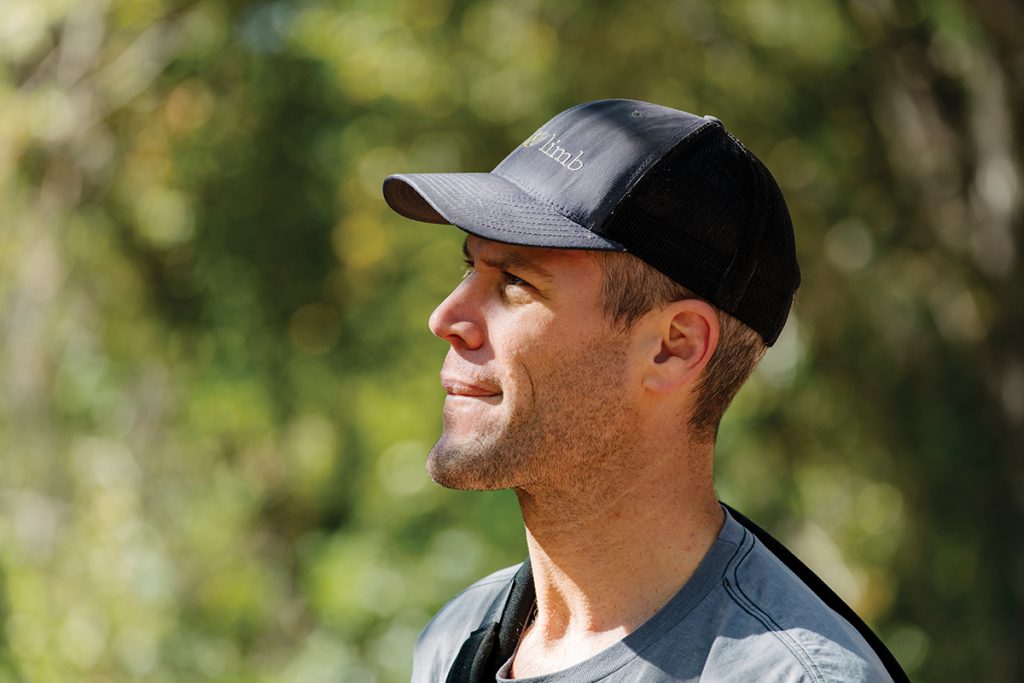
In 2010, Basil Camu joined his parents’ tree service business, Leaf & Limb, as a partner with his father. They’d started the business in West Raleigh in 1997, primarily doing tree removal and trimming. “It was a pretty small mom-and-pop type of business,” says Basil, who’d spent the previous years working in finance and travel and studied economics at Duke University.
Going into the family business, “those skills didn’t help me all that much. I had to figure everything out as I went,” he says. But he’s a fervent reader with big ideas, so he poured himself into growing Leaf & Limb. He learned web building and marketing, implemented safety programs, assessed financials and researched other services that could help distinguish Leaf & Limb from its competitors. “Each year brought new ideas and changes,” Basil says. Between 2010 and 2019, those efforts helped grow the company into a profitable, 50-employee operation, one of the largest of its kind in the state.
But as the business grew, it also became hard for him to stomach. “So much of our revenue was coming from tree removals. We’d cut down these gorgeous old oaks and pines to make way for someone’s new lawn,” he says. Through his work, he was learning about the complexities of soils and the fascinating role trees play in our ecosystem. His love and appreciation for trees and the environment was growing, but he felt he was contributing to the deforestation of Raleigh. “I was questioning what I was doing with my career, what we were doing as a company,” he says. “We were destroying the very engine that drives the planet.”
So in 2017, Basil started shifting the business away from cutting down trees to focus on structural pruning, securing existing trees, planting new ones and doing soil work instead. It not only aligned with his personal philosophies but, he says, “working with natural systems instead of against them also saves time, money and manpower.”
The shift wasn’t an easy one. Some employees left. There was pushback from customers, he recalls, some of whom insisted on removing old-growth trees, simply for aesthetic reasons. “We could not convince them otherwise,” Basil says. “That was disappointing.”
By the end of 2019, tree cutting had shifted from 60% to 40% of Leaf & Limb’s business, but to Basil, they hadn’t gone far enough. “I still felt like we were taking too many trees down,” he says. “We had to decide to just stop cutting trees altogether.”
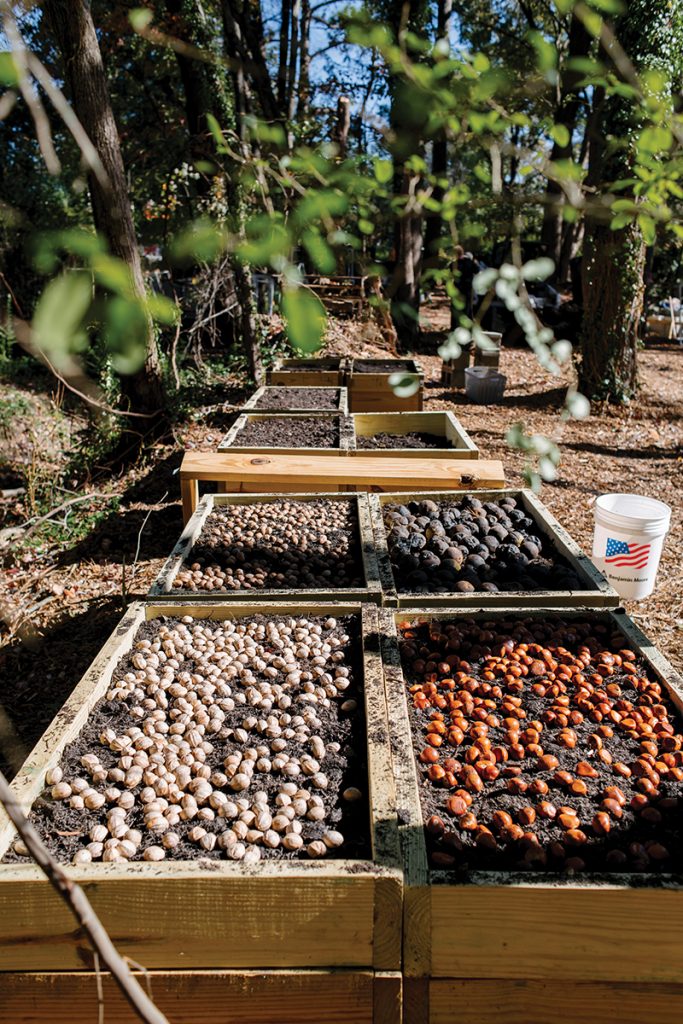
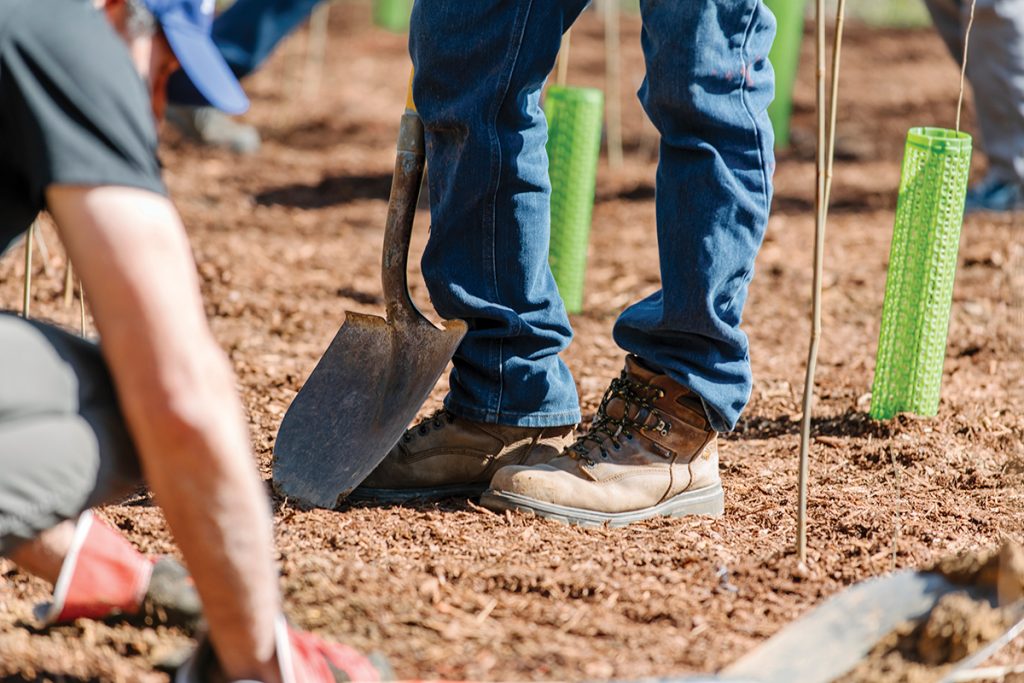
So in 2020, the company made it official. They announced the change in a newsletter to their clients and shared a video on social media about the new no-cutting approach. “Now, we only care for trees, plant them and teach people why they are important,” says Basil. Once again, they lost business, but by 2023, the company had crept up to the revenue they were at before the shift. “We’re noses above water,” he laughs.
“I like the direction that we’ve taken; I’m all for being a good steward of what’s given to you, and I think we should be at least responsible for the resources we have,” says Colin Camu, Basil’s father, who is still involved in the company. He’s in charge of training and education, including making sure that everyone employed at Leaf & Limb participates in a five-year program to become a certified arborist.
Alongside the shift in business, Basil’s been spearheading environmental causes through Leaf & Limb’s grassroots nonprofit, Project Pando. It’s named after the giant, 80,000-year-old colony of quaking aspen trees in Fishlake National Forest in Utah, the largest in the world. “Just like the roots of the trees in the Pando colony are all connected, we humans should understand that we are all connected, we share resources — and what’s good for one is good for all,” he says.
Starting in 2017, the company offered paid days on the first Friday of every month for staffers to volunteer with local organizations. They’d organize food or sort clothes — whatever the nonprofits needed — but soon realized they could have a bigger impact by targeting their efforts. “We did more with our existing expertise and resources when we volunteered with organizations like We Plant it Forward and Trees Across Raleigh,” says Basil. Through that work, he saw a need for both more trees for planting and more people with the knowledge to help them thrive.
So in 2020, Basil decided to focus Pando’s efforts on collecting seeds from native trees, growing them into saplings and distributing them, for free, within the community. “Trees are part of what makes the Triangle feel like home,” says Emmanuel Brown, the organization’s co-director. “What we’re trying to do is help people understand how important trees are, because the trees themselves are pretty quiet.”
Native trees like oak, Longleaf pine, elderberry and dogwood are uniquely suited to provide food and shelter to other native creatures, like birds and insects. “A native oak, for example, can benefit around 1,000 insects,” says Basil. But native trees are harder to come by in commercial spaces, like nurseries, where camellias, azaleas and Japanese maples dominate the sales floor. “These plants can be fun and exciting, but using too many can lead to a landscape dominated by plants that aren’t from here,” Basil says.
To collect native seeds, Project Pando enlists hundreds of volunteers in the area. Through instructional videos, online tools and tree identification outings, Project Pando teaches them how to recognize and gather the seeds of the more than 80 species of native trees and shrubs that grow in North Carolina. Pando has a calendar to note the seasons in which each tree’s seeds are prime for collection: the dogwood’s red berries are best gathered in the fall, for example, while the red maple’s helicopter-type seeds are ready each spring. The volunteers then take their seeds to one of 10 drop-off locations, including the Leaf & Limb headquarters, farms and extension service sites.
The seeds are then taken to Project Pando’s growth sites, a 2-acre plot at Leaf & Limb’s property and a 16-acre site at Triangle Land Conservancy’s Bailey and Sarah Williamson Preserve in Southeast Raleigh. There, the seeds are planted and raised in air-pruning boxes. They can hold hundreds of saplings but have mesh bottoms that stop them from getting too big (the roots stop growing when they hit the air). This novel approach means that Project Pando is able to raise thousands of saplings at once. “The roots grow laterally as opposed to going down into the earth, so they’re easier to transplant,” says volunteer Caroline Richardson. The soil they’re planted in is made up in part by City of Raleigh leaf waste.
Depending on the species, once the trees reach about 6 to 36 inches, they are donated to volunteers to plant at home or in their neighborhoods, as well as to schools and nonprofit organizations, like We Plant it Forward and the Walnut Creek Wetland Center, on a first-come first-serve basis. “We don’t do tree planting — we’re more of a provider of tree materials. We’re creating this pipeline of native trees to help other people heal our local ecosystems,” says Basil. Thanks to these efforts, about 15,000 trees were given away in 2024.
Brown oversees and works with volunteers and partners in the Project Pando nursery. “Part of the magic is that it’s easier to learn about trees when you’re working with them directly,” he says. The volunteers become experts themselves, teaching their neighbors and friends why native trees matter. “They’re hands-on with environmental issues, but not in a boring or depressing way,” says Basil.
Last spring, Basil released a book, From Wasteland to Wonder, which holds the blueprint for their nonprofit as well as essays about the importance of native trees and how to support them in our urban and suburban landscapes. Available for free on Leaf & Limb’s website, he hopes it will encourage folks to copy his model and cultivate native trees in other areas: “We just want to grow this idea and give it away.”
This article originally appeared in the January 2025 issue of WALTER magazine.

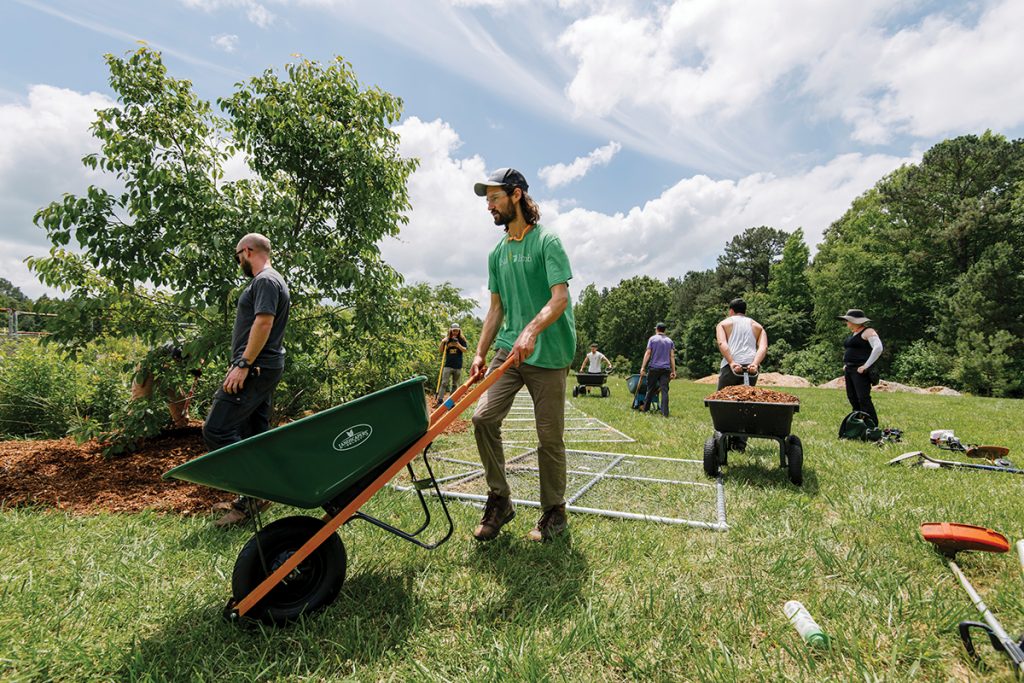
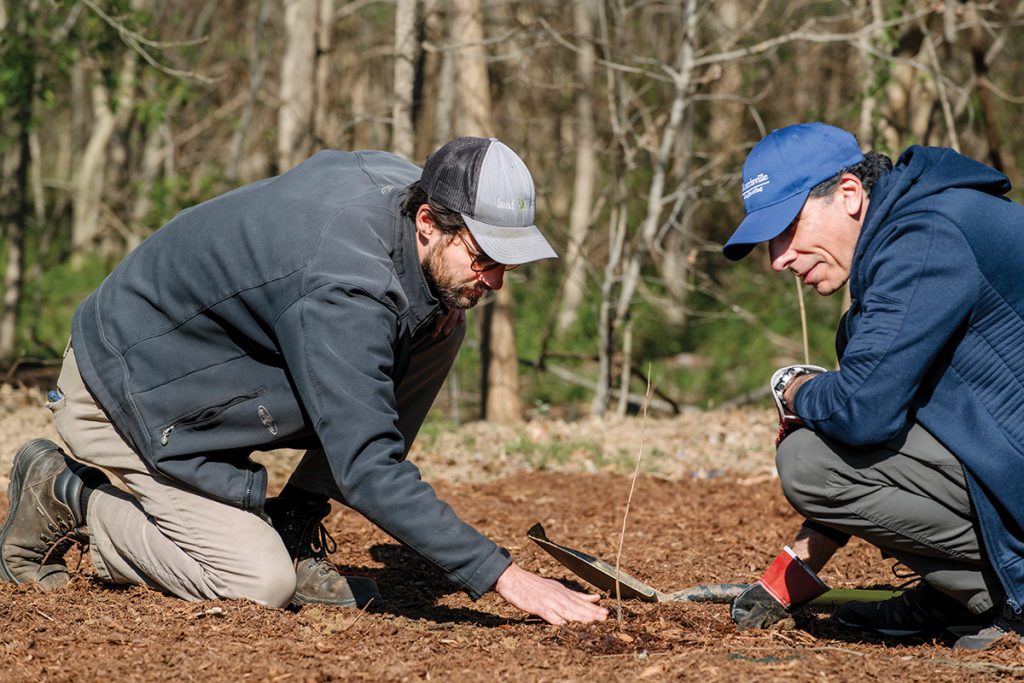
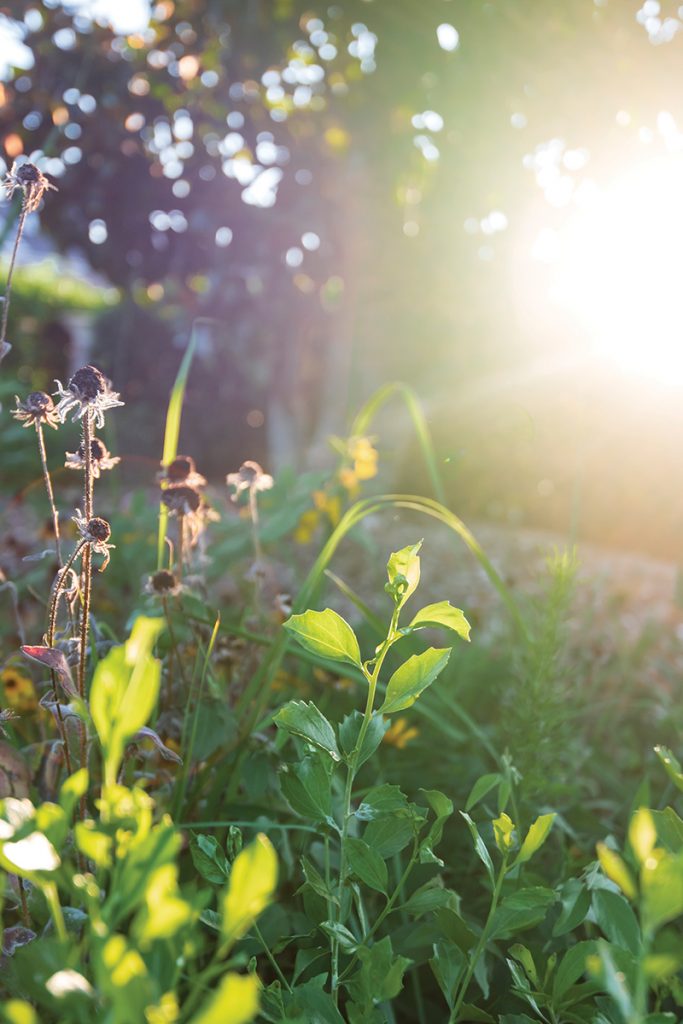

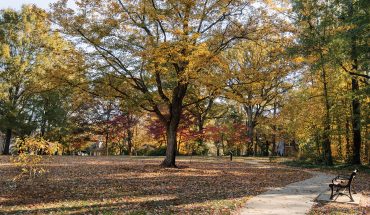

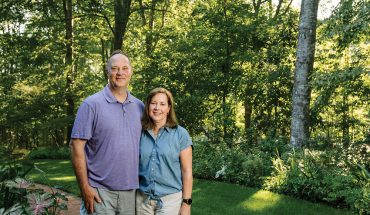
Pingback: What to Do in January 2025 In and Around Raleigh - WALTER Magazine